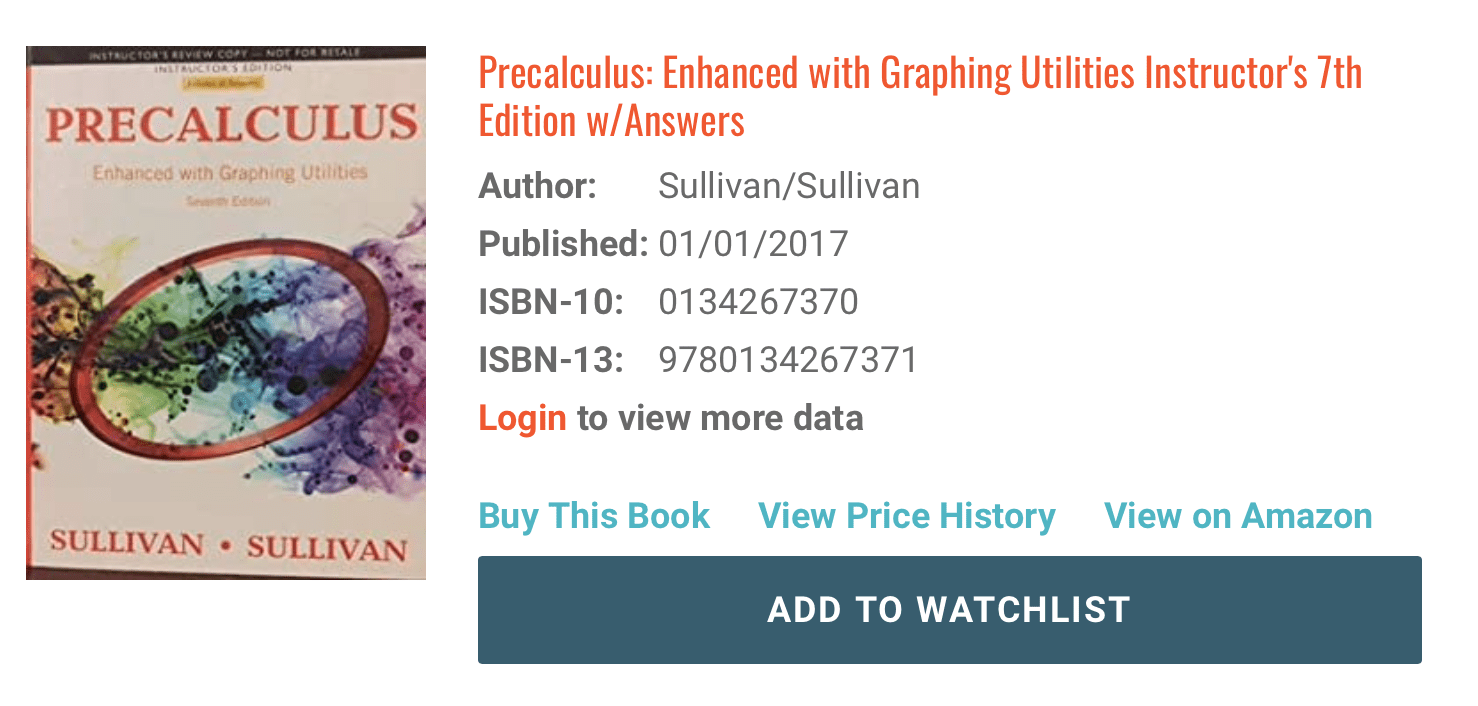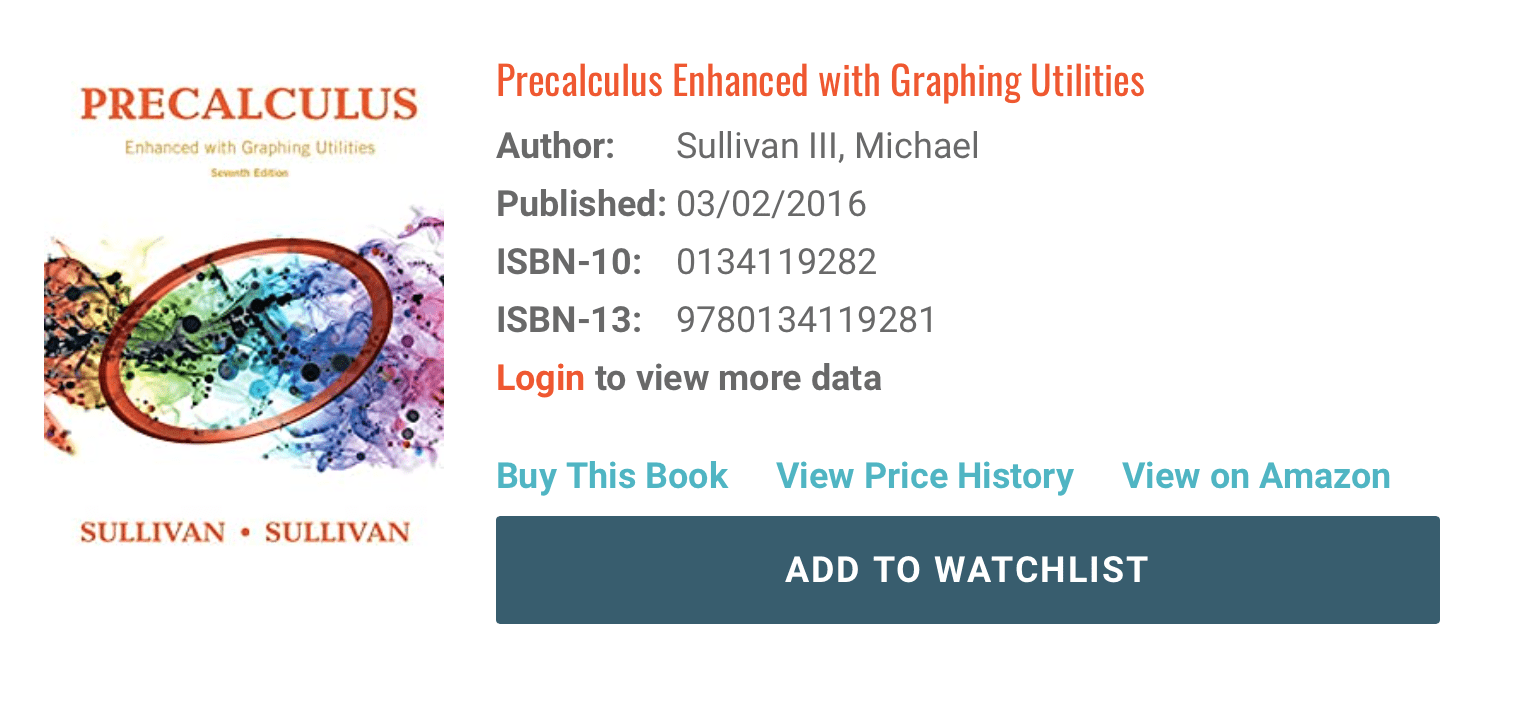
You’ve definitely encountered phrases like “Instructor Edition Textbooks” or “Teacher’s Edition Textbooks” when hunting for affordable books for college. Let’s figure out what this whole thing is about and answer the most pressing questions: are these kinds of faculty textbooks the same? Is selling teacher edition textbooks illegal? Do instructor edition textbooks have content identical to student editions?
- What is a Teacher’s Edition Textbook?
- How to Recognize a Teacher’s Edition Textbook?
- Should I Buy Instructor Edition Textbooks?
- Is Using and Selling Teacher’s Edition Textbooks Legal?
- How to Sell Teacher’s Edition Textbooks?
What is a Teacher’s Edition Textbook?
Let’s get the terminology straight. There are annotated books, student editions, and teacher’s editions (instructor editions). On top of that, some publishers and booksellers refer to desk, review, or evaluation copies. Are they all the same? What is the difference between an instructor edition and a student textbook?
Teacher’s Edition Textbook (aka Instructor Edition Textbook aka Review Copy)
Publishers are eager to have their textbooks included in syllabi, as it’s a sure way to get students’ money. Therefore, once in a while, professors receive so-called review copies (also known as desk or evaluation copies) of recently released textbooks in their subject.
These textbooks are usually identical in their content with those books used by students. The only difference is that the books will have a sticker saying “not for resale,” or “teacher’s edition textbook,” or “instructor edition textbook.”
Annotated Teacher’s Edition
The annotated edition is something completely different. This textbook includes answers, special teaching materials (like lesson plans and sample tests), and an instructor’s manual. While the core might repeat the content of the student edition textbook, the layout is entirely different as there are usually notes and tips for teachers on the margins.
These annotated editions are used by instructors to prepare for classes and when checking assignments. Although completely different from teacher’s edition textbooks (aka review copies), the crucial word “annotated” is often left out when the book is on sale. If you’re buying textbooks online, this will be misleading. However, there are ways to differentiate between these faculty books and student editions.
How to Recognize a Teacher’s Edition Textbook?
ISBN
An annotated teacher’s edition that includes a teacher’s manual will have a different ISBN (this number is a unique book identifier). If it’s just a sample desk copy sent to the professor to check if the book is worth including in a course, the ISBN will most of the time be the same.
Cover
If you have a physical book or at least its photo, the cover will help you understand what’s going on. It usually has marks like “Free Copy / Not for Sale / Annotated Instructor’s Edition / Annotated Teacher’s Edition,” and you’ll immediately identify the book in front of you. The back cover might also include an explanatory note. Of course, if you can leaf through the book, you will notice if there are any tips for teachers that betray an annotated edition.
Most probably, you don’t want to end up getting an annotated teacher’s edition instead of a cheap desk copy identical to the student’s edition. To avoid this, use proven vendors who indicate these nuances and check that instructor edition textbooks are identical with student’s editions and can be used in a classroom. You can rely on BookScouter vendor ratings and reviews given by the users. Shop with confidence!
For example, here it is clearly stated that this edition of Precalculus is annotated (and contains answers) while the other is a standard US student edition. Note that the ISBNs also differ.
Should I Buy Instructor Edition Textbooks?
A short answer is yes; unless it’s an annotated edition.
Teacher’s edition textbooks are always cheaper because they never arrive ‘new’ but are always used copies that have been resold or given away by the faculty. A non-annotated review copy will be absolutely suitable for college as it is, in most cases, identical to students’ textbooks.
It’s much more tricky with annotated instructor edition textbooks. First, content and page numbers might be different from students’ editions. Second, you’ll get a lot of unnecessary materials like additional references and classroom tips. Finally, you’ll have answers to most of the tests, and this is considered cheating. And if you want to sell this annotated copy back, you won’t get much money for it. So it’s not advisable to get annotated editions for your courses.
However, if you are revising or studying on your own, having answers and further tips by your side is helpful. But then you can also consider dedicated self-study guides and exam prep materials that are designed specifically for that.
Is Using and Selling Teacher’s Edition Textbooks Legal?
There is a huge discussion about reselling desk copies, and we won’t give the final judgment. BookTrapper has recently made a very good point why it is actually possible to resell instructor edition textbooks, just like any other college book.
Is it ethical to use an annotated edition with answers for your studies? It depends mainly on how you work with the textbook. If you use the answer list just to check your comprehension, that’s fine. However, it’s important to note that many instructors may not approve of using such annotated editions. If you require textbook answers, an alternative option is to utilize learning platforms that offer answer verification services.
How to Sell Teacher’s Edition Textbooks?
If you scouted in a second-hand shop a sample copy identical to the student’s edition, you got a goldmine. You can sell this book for the same price as a regular edition (because it’s essentially the same), and if the demand is high, you will get a pretty good price for it. Hurry up and check your quotes on BookScouter!
Used annotated editions are much more difficult to sell. You will often get as little as 20 percent of what is quoted for a student edition of the same textbook. But it’s only fair since it might not be suitable for coursework.
Final Thoughts
Teacher’s edition textbooks are usually cheaper because they’re already used copies. Make sure that you get a copy identical to the student edition (also called review or desk copy).
Annotated editions would typically have a different ISBN, and they won’t be a good choice for completing coursework. They might be suitable only for revising and self-studying. Still, there are also more convenient exam prep books and self-study guides. BookScouter will help you find a place where you can buy these and other editions for cheap and sell for more!





